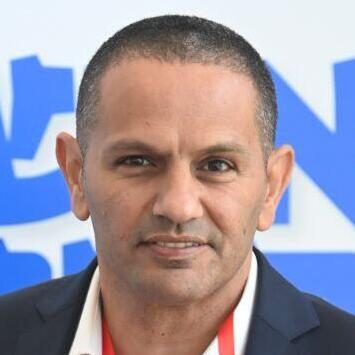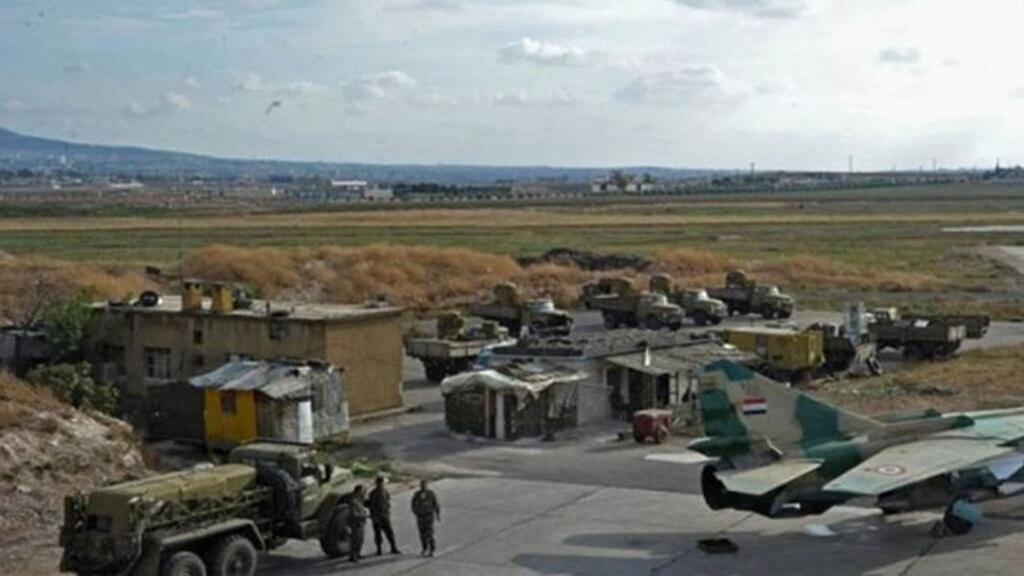U.S. defense officials have informed their Israeli counterparts that the United States plans to begin a phased withdrawal of its troops from Syria within two months, according to information obtained by Ynet.
Despite previous Israeli efforts to prevent such a move, Washington has made it clear those efforts were unsuccessful. Still, Israeli defense officials are not giving up and continue to press the Biden administration to reconsider.
The planned withdrawal comes as no surprise. Former President Donald Trump, now back in office, had long promised to pull U.S. troops out of the region under his administration’s isolationist doctrine, influenced in part by Vice President J.D. Vance.
2 View gallery


Abu Muhammad al-Julani, Benjamin Netanyahu, Donald Trump and Tayyip Erdogan
(Photos: Haj Suleiman/Getty Images, IDF Spokespersons' Unite , Abdulaziz KETA, Marc Israel Sellem, Alex Brandon/Matias Delacroix/AP, Andrew )
"This is not our war,” Trump has stated repeatedly, and the Pentagon has been preparing for the move for some time. Washington is now transitioning into the operational phase, with regular updates being shared with Israeli defense officials. In discussions between the parties, Israeli representatives have expressed serious concerns about the potential consequences.
A senior Israeli official estimated that the withdrawal may be only partial—and Israel is trying to prevent this too, out of fear it would embolden Turkey, which has been openly seeking to expand its influence in the region since the fall of the Assad regime. Currently, U.S. troops are stationed at several key points in eastern and northern Syria, playing a stabilizing role. Israeli defense sources fear their removal could spur Turkish efforts to seize more strategic military assets in Syria.
Turkish President Recep Tayyip Erdoğan is reportedly eager to exploit the shifting regional dynamics to assert his country's status as a dominant regional power, with Syria playing a central role. His increasingly hostile rhetoric toward Israel since the start of the Gaza war has only deepened Israeli unease. While Turkey is not considered a hostile state, Prime Minister Benjamin Netanyahu recently described it—like other countries—as “complicated.”
Israel has warned both Ankara and Washington that a permanent Turkish presence at bases such as Tadmur and T-4 would cross a red line and threaten the IDF’s operational freedom in the northern theater. In a meeting last week in Azerbaijan, Israeli and Turkish officials discussed the issue. Israel reportedly emphasized that it holds Syria’s new government accountable for all military activity in its territory, warning that violations could trigger military action. Both sides expressed interest in de-escalation and began talks on establishing a coordination mechanism similar to the Israel-Russia deconfliction model previously used in Syria.
Nonetheless, the looming U.S. withdrawal, coupled with Trump’s warm tone toward Erdoğan during his recent meeting with Netanyahu, has heightened tensions in Israel’s defense establishment. Trump’s offer to mediate between Israel and Turkey has not reassured officials in Jerusalem, particularly given growing signs of American disengagement. As one Israeli security source put it, recent airstrikes on the T-4 base are part of “a race against time” before “the Americans pack up and leave.”
Get the Ynetnews app on your smartphone: Google Play: https://bit.ly/4eJ37pE | Apple App Store: https://bit.ly/3ZL7iNv
Erdoğan, meanwhile, remains closely aligned with Syria’s new president, Ahmad al-Sharaa—also known as Abu Mohammad al-Julani, a former al-Qaida operative whose jihadist group Hayat Tahrir al-Sham helped topple Bashar Assad’s regime in December 2024. With Iranian forces—once Assad's key backers—now pushed out of Syria, a development that benefited Israeli interests, officials in Jerusalem now worry that Turkey will attempt to fill the vacuum. A Turkish military foothold in the new Syria, they fear, could limit Israel’s operational freedom and eventually pose a direct threat along the Golan border.
The meeting between Israeli and Turkish officials in Azerbaijan last week focused on technical issues, such as establishing a conflict-prevention mechanism in Syria. A diplomatic source said Israel made it “abundantly clear that any change in the deployment of foreign forces in Syria - and in particular the establishment of Turkish bases in the Palmyra area - is a red line and will be considered a breach of trust."
“Israel has previously stated that preventing this threat is the responsibility of Damascus,” the source added. “Any action that endangers Israel will endanger al-Sharaa’s regime.”
Erdogan delivers speech in honor of end of Ramadan
The T-4 base, located near Tadmur in central Syria, has been a recent focal point of Israeli airstrikes. Security officials say the presence of Turkish forces in that area—far from Turkey’s own border—would endanger the Israeli Air Force’s freedom of movement. Prior to Assad’s fall, Iran had established a significant military infrastructure in the area. Reports indicate that Israeli strikes on several Syrian military installations, including T-4, occurred shortly after Turkish delegations visited the sites in preparation for a possible deployment.
Despite efforts to calm tensions in Azerbaijan, Erdoğan continued to lash out at Israel just two days later. In a fiery speech, he once again labeled Israel a “terrorist state,” accused it of trying to sabotage Syria’s “revolution,” and warned, “Anyone seeking to inflict more pain on the Syrian people must be prepared to pay the price.”






